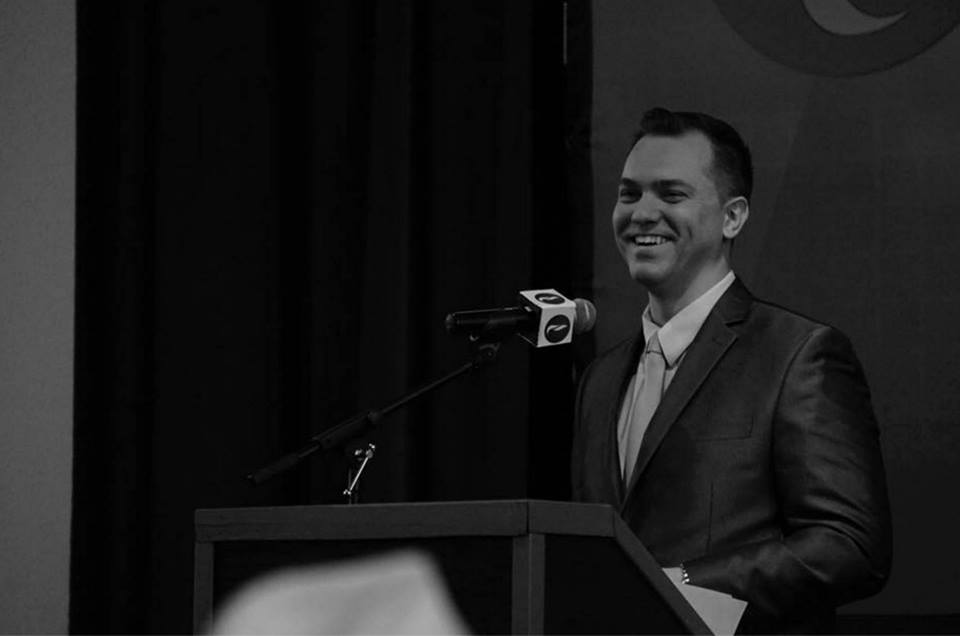LISTEN TO TLR’S LATEST PODCAST:
by Ian Tartt

This is a response to an article written by Austin Petersen about why he joined the Republican Party. Will it help him accomplish his political goals, and is he correct about the party’s history and where it stands now? Let’s take a look.
To Petersen’s first point, nobody should be surprised at Republicans (or any politicians for that matter) failing to uphold their campaign promises, especially when those promises involve shrinking government (such as in his example about Republicans failing to repeal Obamacare). Unfortunately, the short attention spans and memories of voters allow politicians to create long-term problems for all of us.
As far as the staying power of the Republican Party is concerned, major political parties have fallen by the wayside historically, but that hasn’t occurred in more than 150 years. Ever since the Republican Party rose up and the Whig Party died out, American politics has been dominated by the Republican and Democratic parties. And despite what some say, their interests and powers are entrenched deeply enough within government and society that neither of them will likely be going away in the foreseeable future.
Petersen then talks about “basic conservative principles” and the ideology of the Republican Party. For starters, what are “basic conservative principles”? Are they the principles of Barry Goldwater, who called himself a conservative even though he’d be more accurately described as a libertarian; or are they principles of the conservatives prior to the 20th century who fought against the classical liberals to preserve the old order of imperialism, fiat money, union of corporation and state, protectionism, deficits, and high taxes? If they are the former, then they shouldn’t be called conservative. If they’re the latter, then they’re not worth celebrating or defending.
The idea of the Republican Party being about liberty is a relatively recent phenomenon. It certainly wasn’t in the minds of the founders of the party, who essentially carried on the progressive ideas of the Whig Party. The latter half of the 19th century, which was mostly dominated by Republican presidents, bears this out. Even Abraham Lincoln, the first Republican president, demonstrated this with his support of high tariffs, employing conscription, and overseeing the first national income tax in US history as well as a series of national banks. Further, Lincoln’s role in freeing slaves is not as straightforward as many think. The Emancipation Proclamation, often thought of as freeing the slaves, only declared Confederate slaves to be free; since those states didn’t recognize the authority of the US government, and the document didn’t declare slaves in the Union to be freed, Lincoln in reality only helped free a handful of slaves.
Since the party was founded, almost no Republican presidents have done anything to substantially reduce the size and power of government. Most, in fact, left the government much bigger than they found it. This is true even of the golden boy of the Republican Party, Ronald Reagan. Despite talking a great deal about freedom, Reagan signed the largest peacetime tax increase in US history, in addition to signing legislation that forced states to raise the drinking age to 21, escalating the War on Drugs, spending more than the five previous presidents combined, and adding over $1 trillion to the national debt by the end of his presidency. Reagan did succeed, however, in talking about smaller government while simultaneously growing government, a move Republican politicians have followed ever since. There are some liberty-minded Republicans as mentioned in the Petersen article, but they are but a drop in the bucket of authoritarians that make up Congress. Could that change over time? Perhaps, as the Democratic Party changed in the late 1800’s; William Jennings Bryan took the party from its classical liberal heritage to the progressivism it has borne ever since. However, the pressure to grow government is so much stronger now than the pressure to reduce it that making the Republican Party libertarian will probably never happen.
When it comes to politics, principle should trump party. Ron Paul demonstrated that it’s possible to stay committed to one’s principles regardless of party affiliation, yet he’s so rare a phenomenon in US politics that he may be the one politician who can do so. Even those in the Libertarian Party, often touted as “the party of principle”, demonstrated in the last election that many of them are willing to put their party first and abandon principle by supporting whatever candidates have a big L next to their name. And, like every other presidential election in the history of the Libertarian Party, the ticket came nowhere near close to winning. Petersen was one of many Libertarian Party members who put party above principle by supporting Gary Johnson, so what does that suggest about his ability to maintain consistent libertarian principles when he’s under pressure to support even more authoritarian candidates in the Republican Party? If he does manage to win and actually makes a positive difference for liberty from within the government, that’s worth celebrating. But he’s got a long, long road ahead of him, and he may break down at some point along the way.




3 comments
… [Trackback]
[…] Find More here on that Topic: thelibertarianrepublic.com/response-austin-petersen-became-republican-2/ […]
… [Trackback]
[…] Find More on that Topic: thelibertarianrepublic.com/response-austin-petersen-became-republican-2/ […]
… [Trackback]
[…] Read More Info here on that Topic: thelibertarianrepublic.com/response-austin-petersen-became-republican-2/ […]